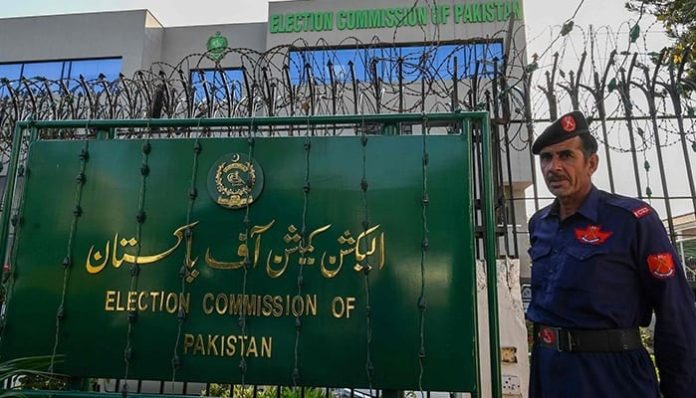———- Asserts the newly introduced Election Amendments Act requires further clarification on decision
———- Adds reserved seats’ amended laws were applied retroactively
———- Claims civil miscellaneous application filed to seek SC’s advice
ISLAMABAD: The Election Commission of Pakistan (ECP) has approached the Supreme Court once again for clarification regarding the allocation of reserved seats to the Pakistan Tehreek-e-Insaf (PTI).
In the application submitted to the Supreme Court, the ECP stated that guidance was needed following the introduction of the Election Amendment Act, as the brief ruling from July 12 was issued prior to the enactment of the new law.
The ECP’s request further noted that the Parliament had now established a legal framework through the Election Amendment Act and sought clarification on whether to implement this parliamentary law or adhere to the Supreme Court’s earlier ruling.
It is important to mention that on September 23, the majority of judges in the Supreme Court released a detailed judgment regarding the reserved seats case, once again directing the ECP to notify PTI candidates for the reserved seats.
The Supreme Court on October 23 declared that the Election Commission of Pakistan’s (ECP) decision of March 1 was contrary to the constitution and the reserved seats should be given to the Pakistan Tehreek-e-Insaf (PTI).
The apex court issued its detailed judgement on the reserved seats. The verdict comprises 70 pages and is written by Justice Mansoor Ali Shah.
The Supreme Court annuled the Peshawar High Court’s and ECP’s March 1 decision. According to the written decision, the ECP’s decision has no legal status. “It’s decision is against the constitution”, the SC ruled.
On Sept 14, an eight-member bench of the apex court disposed of the ECP’s petition, stating that its request for clarification was merely a “delaying tactic”.
In the detailed judgement, the apex court ruled that the PTI was a political party which contested the Feb 8 elections and won seats in the National and provincial assemblies. The reserved seats should be given to the PTI, the court ruled.
“The PTI is entitled to reserved seats in the National Assembly,” the apex court ruled and ordered the ECP to notify PTI winning candidates.
The court ruled that the ECP declared 39 of 80 MNAs to be that of PTI. It asked the ECP to take the signed statement of the remaining 41 MNAs within 15 days.
The decision states that the ECP is the fourth pillar of the state and ensuring the democratic process in the country is its prime duty. The ECP had failed to perform its constitutional duties.
“The constitution and law does not bar any political party from fielding candidates in elections. Denying a party election symbol does not restrict it from contesting election,” the judgement ruled.
According to the decision, the masses are the biggest stakeholder in an election. An election dispute is fundamentally different from civil disputes.
The court expressed its surprise that how so many independent candidates could be successful in a parliamentary democracy based on a political party system?
No satisfactory answer had been given to this question.
According to the judgement, the PTI claimed that all independent candidates were its candidates and voters voted for them because they were the PTI candidates.
It may be recalled that on July 12, the Supreme Court annulled the decision of the Peshawar High Court and the ECP on the petition of the Sunni Ittehad Council regarding reserved seats and declared the PTI entitled to the seats.
The ECP filed a review petition on Aug 7 on the Supreme Court decision on reserved seats. The apex court on Sept 14 rejected the ECP’s petition and ordered it to implement its verdict. –Agencies




